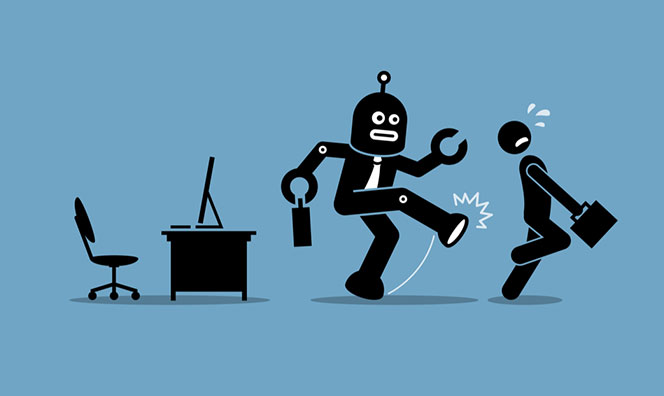A common question we hear everywhere these days is - ”Will AI/Robots replace humans?”
What do you think?
One of the last subjects Stephen Hawking wrote was not as widely reported as perhaps it should have been. The physicist, who had previously warned about the potential threat artificial intelligence posed, more recently suggested that humans faced an even greater and more immediate threat. Sometime in the foreseeable future, he said, the human race could divide into two: those with an average intelligence level by today’s standards and those with super intelligence. The latter breed will have bodies improved by genetic engineering and brains improved by artificial intelligence (AI). These “superhumans”, as they are called, will be relatively few in number, but will pose a serious threat to normal humans.
If “Super Humans” exist in future, the super intelligent might be few in number because genetic engineering of humans’ brains and bodies will be very expensive, and only the very wealthy (or wealthiest) will be able to afford it. The result will be the gradual consigning of most humans to the role of a subservient class, less healthy and less intelligent than the others. In a few generations the superhumans’ progeny will begin to inherit the enhanced traits and, so, medical intervention to engineer those enhancements will become less necessary.
Some experts believe AI is a serious threat because machines will eventually become conscious, develop more sophisticated brains than humans, and decide humans are dispensable. Yet despite such dystopian warnings about AI, nobody knows if machines will ever become conscious, indeed nobody really knows what consciousness is. The idea of machines becoming smarter than humans and threatening the human race is pure speculation and most experts believe it’s unlikely to happen this century, if at all. The creation of superhuman beings, however, is less speculative. Already, humans can be improved by genetic engineering and most experts accept that greatly improving the human brain’s cognitive abilities by both genetic engineering and electronic implantation will happen sooner than most people think. Hawking suggests that anticipated advances in genetics will enable people to acquire improved memory and intelligence, as well as improved disease resistance and longer lifespans.
Talking about “Super Humans”, two solutions floating across internet are - To give every person the same chance to become superhuman. The second is to ban the technology. Neither of these solutions will work. First one is simply not practical, not affordable and could be the biggest threat for human race. Later one will just stop human evolution. History is not reassuring on either count.
In summary, AI/Robots might not be a treat to humanity nor will replace humans, at least in this century. AI will augment human workforce.
The use of AI and Robots should be highly regulated knowing the potential they have, to create negative impact to humans and world at large. Regulations should also help in restricting inventions/discoveries that are a treat to human race, like “Super Humans”.Article published on becominghuman.ai – https://becominghuman.ai/ai-robots-do-not-threaten-humans-but-super-humans-do-21c29ea455db



